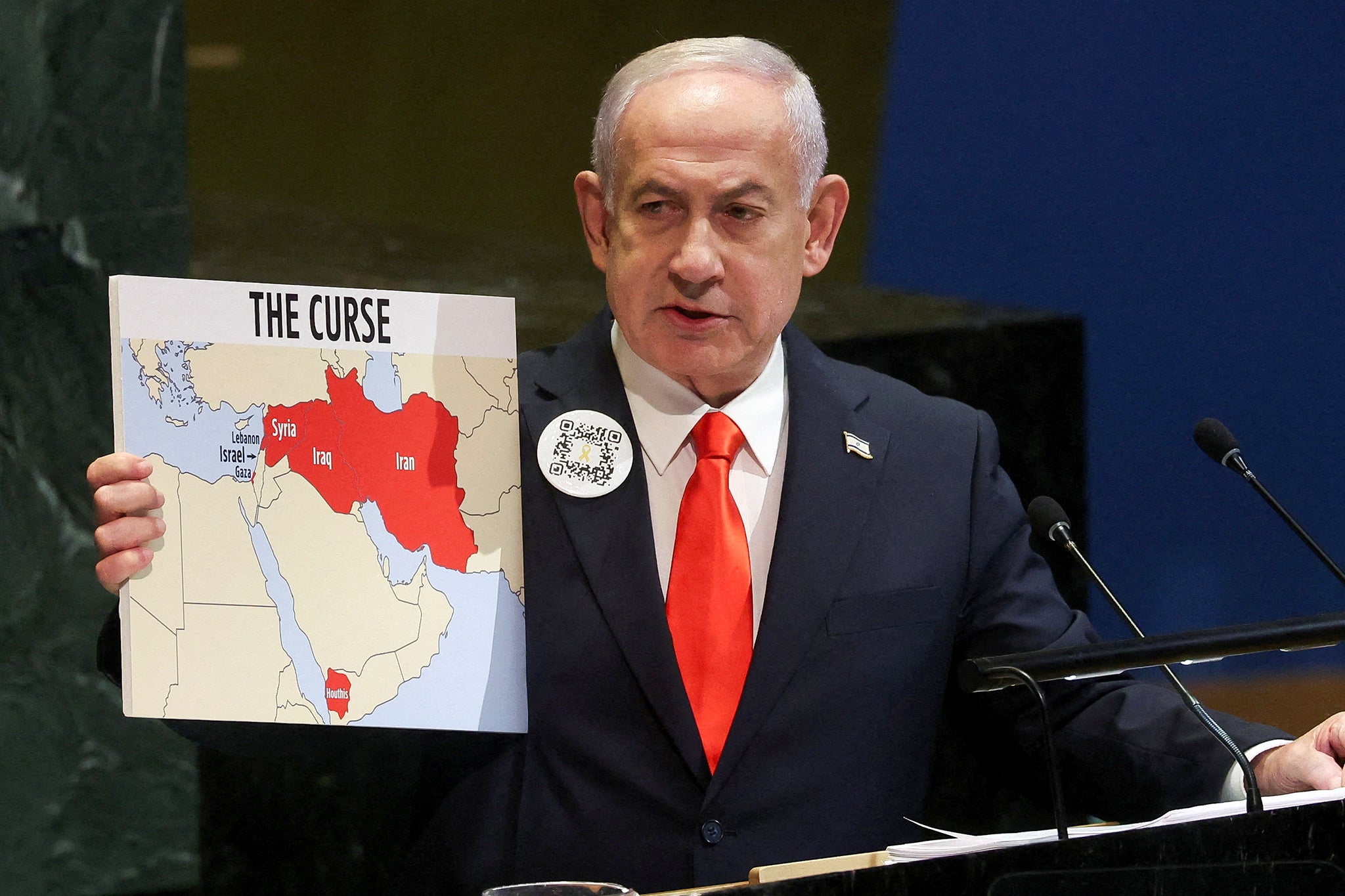Keir Starmer arrives in Liverpool this weekend, 16 months after winning a landslide victory, with his future as prime minister already seriously in doubt.
It already appears that the darling of the conference will be Greater Manchester mayor Andy Burnham who is nakedly flirting with the idea of a parliamentary comeback to replace Sir Keir.
Labour MPs are talking about ousting Sir Keir if the local and devolved elections next May go disastrously again. But Nigel Farage is continuing to attract Labour voters in previously safe parts of the country with Reform enjoying a poll lead of around 10 per cent.

Indeed, an MRP poll this week suggested Reform would be close to winning a majority while Labour would lose 300 seats in a general election.
Little else appears to be going right. Illegal immigration is at its highest levels yet. The economy is flatlining. His chief of staff and key figure in his government Morgan McSweeney has been the subject of speculation about historic donations.
And his choice for deputy leader (education secretary Bridget Phillipson) looks set to be thrashed by an MP he sacked in the recent reshuffle (Lucy Powell).
This week in Liverpool does not only need to go well for the PM, he needs it to be the springboard for a fightback to ensure his very survival in Downing Street. Here are five things Sir Keir must do this week:
1. Prove he is the best person for the job
Also known as “deal with the Andy Burnham problem”.

But it could also refer to the other potential pretenders including health secretary Wes Streeting (on the right of the party) and a possible comeback by his now former deputy prime minister Angela Rayner (on the left) after she was forced to quit over her tax affairs.
The problem is that people in Labour, especially MPs terrified of losing their seats, are looking at these three thinking they all have more charisma and a much clearer idea of what they stand for. In essence, they are seen as leaders while the PM is not.
However, where Sir Keir is seen as a leader is on the international stage. Among people as diverse as Mark Carney, Donald Trump and Ursula von der Leyen, he is seen as a pivotal figure, someone to go to and get things done.
Unfortunately his domestic perception is the reverse of that, especially after disastrous welfare votes in parliament and a series of other U-turns.
Sir Keir now needs to show that he is a leader at home as well as abroad.
2. Explain the big idea
When the PM went to America earlier this year, he tried to explain Starmerism to the pack of journalists accompanying him. Unfortunately, it was not very rousing.
“This is very Starmerite,” he said of the spending review in June. “The first job is always to clear out, clear up, and then move on from there.”

Another phrase he likes to use is “fixing the foundations”. But none of this really provides a vision with an end point for him to point at and get others to follow.
In his conference speech this week, Sir Keir needs to offer something more appealing.
If the big idea turns out to be digital ID cards which he announced earlier this week, it is not going to work. With more than 1.5million people signing a petition against it and strong support and opposition within his own party, the proposal is likely to divide not unite.
3. Bring a warring party together
This issue of uniting the party may prove to be beyond the possible. It certainly has the elements of complexity of a five-dimensional Rubik’s cube. But that does not mean he should not try.
Somehow Sir Keir needs to satisfy the left (where the main threat is coming from) that he is not just a front for the Blairite faction on the right.

He will need to articulate policies, not least on wealth taxes to make the unions and others feel they are being listened to.
Ending the two-child benefit cap will go a long way to help turn things around.
The other issue remains the Middle East and his treatment of Israel. Recognising Palestine as a state is not enough to appease those who believe Israel is committing genocide. Those voices for more action are growing ever louder in Labour.
4. Gain people’s respect
In a very short time, the prime minister has lost a lot of respect. It is a pity for a man, who in person, is thoroughly decent and has had a back story growing up from a low income household to a successful lawyer and PM.
But the jokes about him saying his father was a toolmaker – or the jibes of “two tier Keir” or “never here Keir” or “nothing to see here Keir” – are undermining him.

Recently, former Labour MPs Gloria De Piero and Jonathan Ashworth, who do the Politics Inside Out podcast, suggested to The Independent that he should go to working men’s clubs in the north of England or elsewhere to show his human side.
Ms De Piero said: “Nigel Farage is always in working men’s clubs with a pint in his hand. I actually would like to take Keir to a working man’s club for the podcast or just normally to meet people.
“It’s hard, but I think he would do really well. If Keir went in those clubs, they’d be so bloody grateful to see him. And people just want to be listened to.
“We’re not in masochism strategy yet, I’d call it an engagement strategy, but if he got taken around some of those fabulous red wall working men’s clubs and pubs, I think he’d enjoy it, and he’d be quite good at it. I think people would see a different side of him that was unfiltered.”
5. Fightback against Reform
This brings us to the point which will make or break Sir Keir. He needs to take the fight to Nigel Farage and Reform UK who seem on course for massive victories next year and then at the general election.
The prime minister made a good start on Friday with his speech lambasting the “lies and division” of populism and acknowledging that Labour is “in a battle for the soul of the country.”

He also acknowledged the need for a positive vision for social democratic, progressive politics “beyond managerialism” (which may have been a self-critique).
What he cannot do is out Reform Reform on issues like tackling migration. The prime minister needs to find an authentic appealing message which shows he recognises the problems of mass illegal immigration and the issues with the economy but has Labour solutions for them.
In some ways he needs to carry on and develop the theme of Friday’s speech.
If he succeeds he will certainly be leading his party to the next general election with an eye on a second term. Failure though will only bring a great deal more uncertainty and pressure on his position next year.
